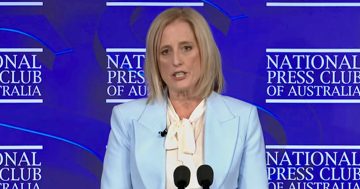James Clark* says new research has shown Australian women over 50 are vulnerable to a potential recession.
 A new report by Australian Seniors suggests that women over 50 may be disproportionately affected by a potential recession due to a combination of financial illiteracy, being financially unprepared and having lower superannuation balances.
A new report by Australian Seniors suggests that women over 50 may be disproportionately affected by a potential recession due to a combination of financial illiteracy, being financially unprepared and having lower superannuation balances.
The report surveyed over 5,000 Australians over 50 and found that 44 per cent of women in the age group are concerned about the rising cost of living, compared to just 35 per cent of men.
The Super Savvy Report 2023 was commissioned by Australian Seniors in partnership with consumer research group CoreData, and uncovers how senior community members are working to secure their financial futures, unveiling attitudes and behaviours regarding super and retirement.
The report suggests a gender gap in super persists in Australia, and senior women may be disproportionately affected by an uneven playing field when it comes to super savings, especially in the face of a possible recession.
Surveyed over-50s believe that women tend to have less money saved at retirement than men due to systemic barriers such as career breaks, more women in lower-paying industries, the gender pay gap and a lack of financial confidence among women.
The report notes that this sentiment has grown from 82 per cent to 85 per cent since 2019.
Although 80 per cent of over 50s are worried about having enough super for retirement, this appears to weigh more heavily on women, with more than four in 10 women over 50 having strong concerns about the rising cost of living compared to just over a third of men over 50.
Overall, the report paints a grim picture of how senior women could be left financially in the event of a recession.
It’s not all doom and gloom though; in one of the report’s more positive findings, 28 per cent of respondents living with a partner said that they have taken steps to close super gaps, making additional contributions or splitting contributions with their partners.
Dawn Thomas, Senior Financial Adviser at The Wealth Designers, says Women over 50 need to be especially engaged with their superannuation.
“An individual’s super balance is affected by many things,” Ms Thomas says.
“Career breaks, wages, divorce, caring occupations and so on.
“A number of life events uniquely experienced by Australian women cause the compounding of the super gap, which in turn has devastating impacts on women’s economic security.
“While for the most part many Australians are disengaged with their super accounts, unfortunately, women over 50 can’t afford to not be engaged with their super.
“Being a passive financial participant is not a luxury women have, and even more so with the recession looming, women should be taking more control of their positions.”
How women should approach retirement
Here are Ms Thomas’s top three tips to achieve a healthier superannuation balance and improve financial security.
- Work out what you want for the next 30 to 40 years
Whether changing your home or car, travelling or how you would like to spend retirement.
Understand how much comes in and out of your household – and weigh this up against how much you will need in retirement – to develop a retirement budget.
It may be helpful to consult documents like ASFA Retirement Standard to get a sense of average retirement figures and then work backwards using your wish list (i.e.
travel) to calculate how much you need in your super.
- Read your super statement
This can tell you a lot about your set-up.
If you can afford to, boost your super by making additional contributions.
There are multiple ways to contribute to super whether they are tax-deductible, tax-free, from an individual or contributed via a spouse.
- Finally, don’t relinquish your role in making financial decisions
Everyone learns about money at their own pace, so don’t fall into the trap of believing that you simply “don’t get it”.
There are plenty of videos, articles, books and podcasts available to help improve your financial literacy, and if you need additional support achieving your personal goals, consult a financial adviser.
A healthy financial process is one where you feel comfortable enough to collaborate with your adviser and feel empowered to ask any questions and make your own decisions.
*James Clark is a freelancer with a forex, crypto & SEO background, writing news, finance and lifestyle content for Yahoo Australia.
This article first appeared at au.finance.yahoo.com











